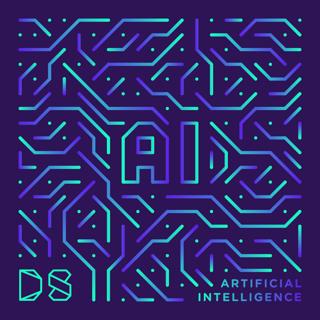
The Master Algorithm
In this week's episode, Kyle Polich interviews Pedro Domingos about his book, The Master Algorithm: How the quest for the ultimate learning machine will remake our world. In the book, Domingos describes what machine learning is doing for humanity, how it works and what it could do in the future. He also hints at the possibility of an ultimate learning algorithm, in which the machine uses it will be able to derive all knowledge — past, present, and future.
16 Maalis 201846min

The No Free Lunch Theorems
What's the best machine learning algorithm to use? I hear that XGBoost wins most of the Kaggle competitions that aren't won with deep learning. Should I just use XGBoost all the time? That might work out most of the time in practice, but a proof exists which tells us that there cannot be one true algorithm to rule them.
9 Maalis 201827min

ML at Sloan Kettering Cancer Center
For a long time, physicians have recognized that the tools they have aren't powerful enough to treat complex diseases, like cancer. In addition to data science and models, clinicians also needed actual products — tools that physicians and researchers can draw upon to answer questions they regularly confront, such as "what clinical trials are available for this patient that I'm seeing right now?" In this episode, our host Kyle interviews guests Alex Grigorenko and Iker Huerga from Memorial Sloan Kettering Cancer Center to talk about how data and technology can be used to prevent, control and ultimately cure cancer.
2 Maalis 201838min

Optimal Decision Making with POMDPs
In a previous episode, we discussed Markov Decision Processes or MDPs, a framework for decision making and planning. This episode explores the generalization Partially Observable MDPs (POMDPs) which are an incredibly general framework that describes most every agent based system.
23 Helmi 201818min

AI Decision-Making
Making a decision is a complex task. Today's guest Dongho Kim discusses how he and his team at Prowler has been building a platform that will be accessible by way of APIs and a set of pre-made scripts for autonomous decision making based on probabilistic modeling, reinforcement learning, and game theory. The aim is so that an AI system could make decisions just as good as humans can.
16 Helmi 201842min
![[MINI] Reinforcement Learning](https://cdn.podme.com/podcast-images/D638FEC254FA044478740E2D161E4BA7_small.jpg)
[MINI] Reinforcement Learning
In many real world situations, a person/agent doesn't necessarily know their own objectives or the mechanics of the world they're interacting with. However, if the agent receives rewards which are correlated with the both their actions and the state of the world, then reinforcement learning can be used to discover behaviors that maximize the reward earned.
9 Helmi 201823min

Evolutionary Computation
In this week's episode, Kyle is joined by Risto Miikkulainen, a professor of computer science and neuroscience at the University of Texas at Austin. They talk about evolutionary computation, its applications in deep learning, and how it's inspired by biology. They also discuss some of the things Sentient Technologies is working on in stock and finances, retail, e-commerce and web design, as well as the technology behind it-- evolutionary algorithms.
2 Helmi 201824min
![[MINI] Markov Decision Processes](https://cdn.podme.com/podcast-images/D638FEC254FA044478740E2D161E4BA7_small.jpg)
[MINI] Markov Decision Processes
Formally, an MDP is defined as the tuple containing states, actions, the transition function, and the reward function. This podcast examines each of these and presents them in the context of simple examples. Despite MDPs suffering from the curse of dimensionality, they're a useful formalism and a basic concept we will expand on in future episodes.
26 Tammi 201820min






















